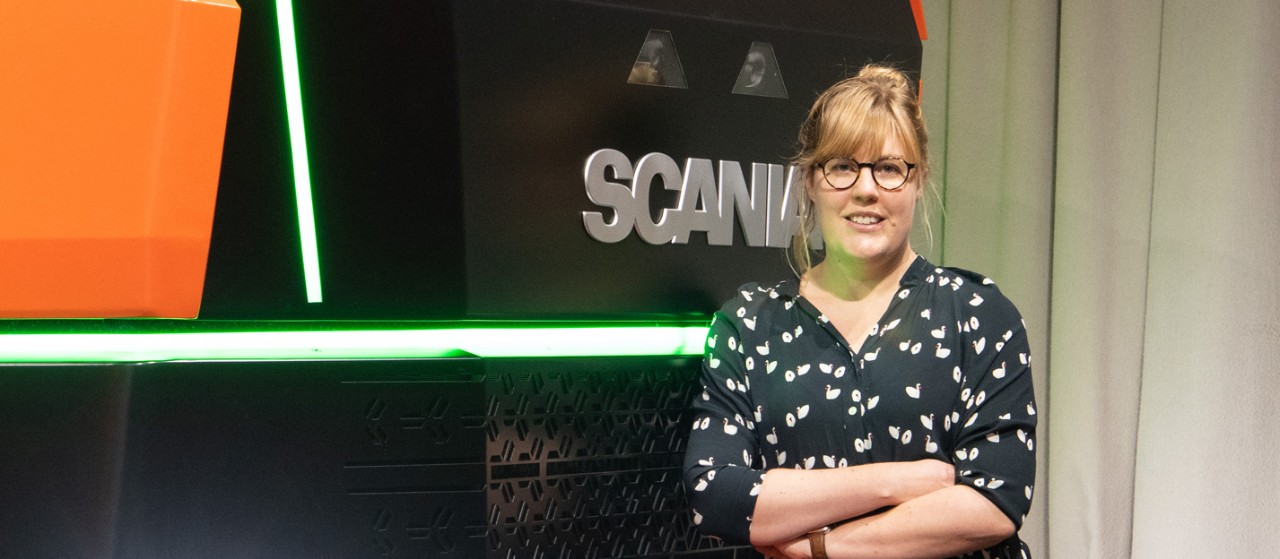
How the vision of an autonomous future affects reality
23 NOVEMBER 2021
How does tomorrow’s vision of an autonomous society guide our decisions of today? And how does these visions and expectations affect our development of new technology? Marie Bemler, Industrial PhD at Scania, does research on how the expectations of our future influences the present.
We have seen them in science fiction movies. Self-driving vehicles, driving autonomously from one place to another, is a vision of the future we have imagined – and now we actually work on making them a reality.
Expectations of the future
As an Industrial Ph.D. student at Scania’s Pre Development of Autonomous vehicles and Stockholm’s School of Economics, Marie Bemler researches on autonomous vehicles and what impact our visions of tomorrows technology has on today’s challenges in organisations, society and technology development.
“The stories we tell about self-driving vehicles express not only what we expect of the future, but are also guiding our decisions today.”
She thinks there is an ambiguity: that we must have a strong belief in new technology and a will to invest in it to learn about its opportunities, but at the same time create these visions before we have the knowledge of what a wise expectation of the technology is.
“We decide what to build, to learn more, without knowing if this is the best usage of the technology,” says Bemler. “We have to balance between certainty to unite us around a strategy and humbleness towards the unknown of the many possible futures ahead of us. There's a bit of charm in that.”
Starting at Scania
How technology affects our society has always interested Bemler, especially when it comes to the future transport landscape. While studying her Master of Science in Engineering, the education was interdisciplinary, including elements of the humanities and social sciences as complements to the technical aspects, but always with focus on technology development.
She then applied to Scania Student Intro, a programme that gives students an opportunity to work at Scania during the summer and do their thesis. In her first years, Bemler worked with testing of software for Scania’s gearboxes at the same department.
Valuable insights
Later, she had the opportunity to join a group that develops advanced emergency brakes and other advanced driver support systems. Around that time, the research department of autonomous system started to develop and she joined them to identify solutions and technology of the future.
“The experience from working with safety critical product development gave valuable insight into what driving forces we give technology and how it affects society. Also, I have always been interested in find new ways of working, so I really enjoyed being part of that development process and build an area within new technology at Scania.”
Academic work
In 2018, her interest lead her to take the challenge as a doctoral student, and bring her experiences from professional life into the academic work. She believes it is a great opportunity where she can combine her interest in strategy and development of future technology.
In the future, she hopes her research will be helpful for the organisation in taking on the unknown.
“We need to get used to new projects with much uncertainty and to be comfortable in the unknown. It is not only about finding good ideas and understanding the risks. It’s about understanding what future we are aiming at and if that future is still accurate, and the same as the rest of society. As a consequence, that may alter our processes and methods, or leadership and decisions.”